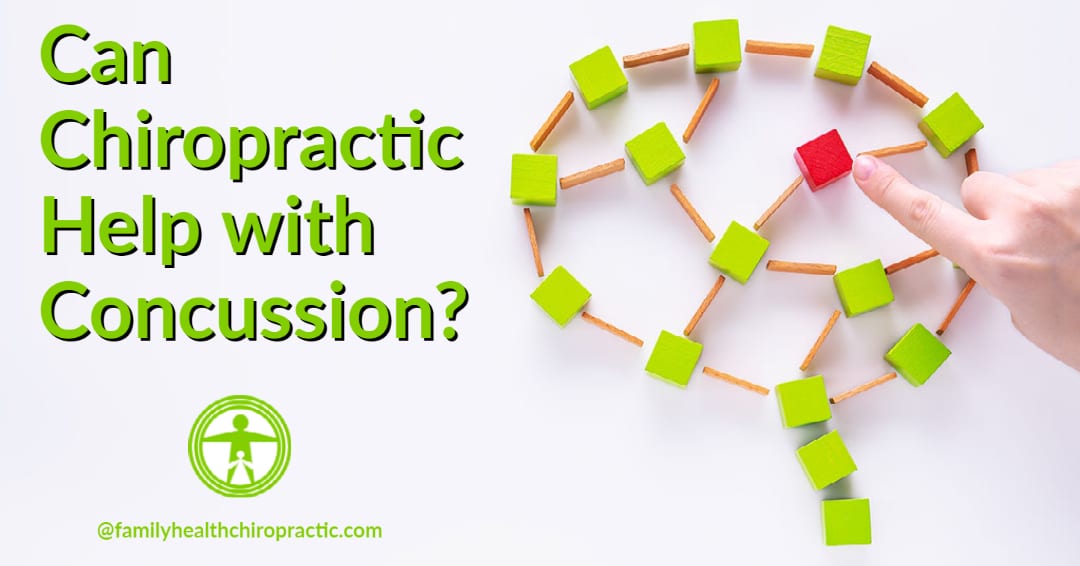A concussion, also referred to as traumatic brain injury (TBI), is caused by a bump, blow, or jolt to either the head or the body that causes the brain to move rapidly inside the skull ultimately negatively influencing how the brain normally functions.
According to the CDC, between 2001 and 2009, an estimated 173,285 people under age 19 were treated in hospital emergency rooms for concussions related to sports and recreation activities. Other causes include car and bicycle accidents, work-related injuries, falls, and fighting.
In this article, we're going to discuss common causes of concussions, symptoms and treatments.
What is a Concussion?
A concussion is the common name that we use to refer to traumatic brain injuries with a variety of different symptoms and mechanisms of injury.
Previously, concussions were referred to as mild traumatic brain injuries. However, experts found that the word “mild” was misleading and this qualifying word has since been removed from the description to TBI or traumatic brain injury.
There is a wide variety of symptoms and problems associated with the concussions and there is no single symptom that is required for it to be classified as a traumatic brain injury.
There are symptoms in many different categories including physical, cognitive, emotional and sleep changes.
While concussions are a common sports injury, they are not exclusive to contact sports.
Symptoms of a Concussion
First, you do not have to lose consciousness in order for an injury to be classified as a concussion. In order for a concussion to occur, there has to be shearing forces of the axons of the neurons in the brain which are the long connecting arms of the neurons.
When these get overstretched there is an impairment of how the information is processed. In a clinical sense this means there can be some short term memory loss, headaches and balance problems, to name a few.
The signs and symptoms of a concussion can be subtle and may not show up immediately.
Common symptoms after a concussive injury are headache, loss of memory (amnesia) and confusion.
Physical signs and symptoms of a concussion may include:
- Headache
- Ringing in the ears
- Nausea
- Vomiting
- Fatigue or drowsiness
- Blurry vision
Other signs and symptoms of a concussion include:
- Confusion or feeling as if in a fog
- Amnesia surrounding the traumatic event
- Dizziness or “seeing stars”
A witness may observe these signs and symptoms in the concussed person:
- Temporary loss of consciousness (though this doesn't always occur)
- Slurred speech
- Delayed response to questions
- Dazed appearance
- Forgetfulness, such as repeatedly asking the same question
You may have some symptoms of concussions immediately, and some can occur for days after the injury, such as:
- Concentration and memory complaints
- Irritability and other personality changes
- Sensitivity to light and noise
- Sleep disturbances
- Psychological adjustment problems and depression
- Disorders of taste and smell
There are also emergency symptoms to be on the lookout for.
If there is a rapid onset of any of the following symptoms, contact the emergency room immediately.
These include:
- Worsening headaches
- Seizures
- Focal neurologic signs
- Inability to be awakened
- Repeated vomiting
- Slurred speech
- Increasing confusion
- Numbness in extremities
- Neck pain
- Unusual behavior change
- Change in consciousness
Treatment for Concussion
If you don’t need hospitalization, most experts agree that a follow-up exam within 24 to 72 hours is necessary if symptoms worsen.
To recover at home, you should:
- Take a break. If your concussion was sustained during athletic activity, stop play and sit it out. Your brain needs time to properly heal, so rest is key. Definitely do not resume play the same day. Athletes and children should be closely monitored by coaches upon resuming play. If you resume play too soon, you risk a greater chance of having a second concussion, which can compound the damage. The American Academy of Neurology has issued guidelines about resuming activities after a concussion.
- Guard against repeat concussions. Repeat concussions cause cumulative effects on the brain. Successive concussions can have devastating consequences, including brain swelling, permanent brain damage, long-term disabilities, or even death. Don't return to normal activities if you still have symptoms. Get a doctor's clearance so you can return to work or play with confidence.
Conventional medicine focuses on two issues surrounding concussions: prevention and medicated management of symptoms.
Both concerns are valid, especially the idea of prevention; wearing a helmet and other protective gear while playing sports helps prevent a TBI in the first place. It also helps ward off repeated brain injuries, the consequences of which can be increasingly catastrophic.
With chiropractic care, however, we take treatment one step further by addressing all the peripheral concerns caused by your concussion.
Rather than throwing anti-inflammatories at your muscle pain or prescribing painkillers to quell migraines, we try to get to the root cause, which is often a dysfunction in the musculoskeletal or nervous systems.
Chiropractic adjustments have been demonstrated to be a natural, drug free solution for concussions and traumatic brain injuries.



